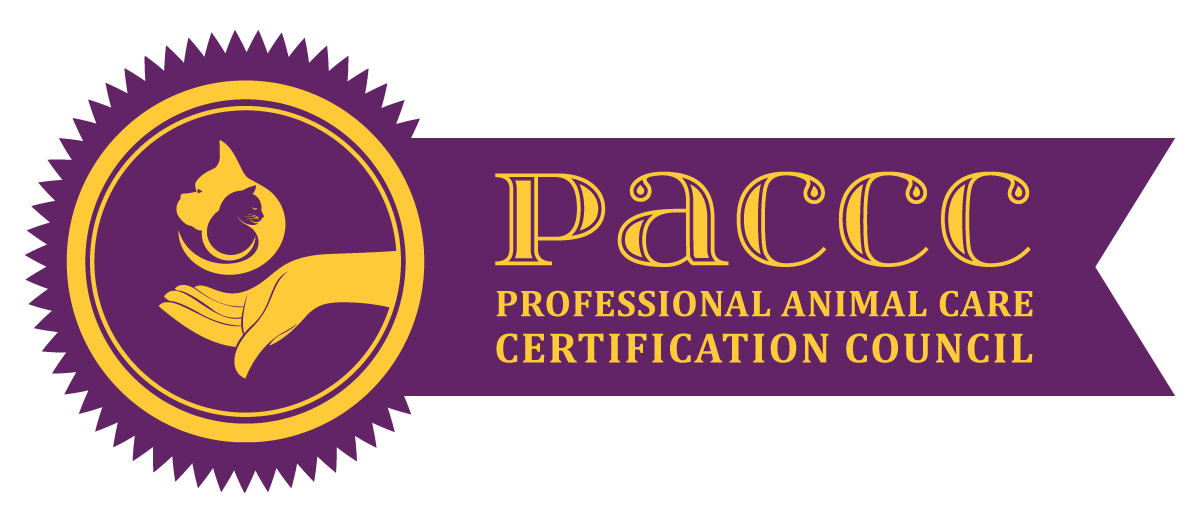1 CEU Canine Body Language and Social Behavior: A Veterinary Behaviorist’s Perspective - Certified Pet Care Professionals
PACCC CERTIFIED DIRECTORY
There are three levels of PACCC certification: Certified Professional Animal Care Provider (CPACP), Manager (CPACM), and Operator (CPACO). The exams are appropriate for the position level one holds in the industry. To initially qualify for the exams, the following individuals had to meet significant minimum education and work experience requirements, as well as provide letters of reference from veterinarians and other pet care industry professionals. They then had to successfully pass an in-depth exam, conducted in-person at an approved PACCC testing location. The first level of certification is CPACP, followed by CPACM which requires an increased level of education and experience, and then CPACO which requires even more. An advanced certification level does not require initial certification at another level. For example, becoming a CPACM does not require initial certification as a CPACP. The exams are appropriate for the position level the professional holds in the industry.
By becoming independently certified, these professionals are pet care pioneers and leaders in pet safety. To remain certified, a minimum amount of continuing education credits must be met.
If you are a Certified Professional but your contact information in our directory is incorrect, please let us know by clicking the button below.
Congratulations to these pet care professionals who have achieved PACCC certified status.
Looking for a PACCC certified pet care professional? You’ve come to the right place! Use the “Search” function if you know exactly who you’re looking for or the “Select Category” dropdown function to find a credentialed pro in your area.
1 CEU Canine Body Language and Social Behavior: A Veterinary Behaviorist’s Perspective

Canine Body Language and Social Behavior: A Veterinary Behaviorist’s Perspective
Website: https://ownersofdogdaycares.com/
Biography
Understanding social behavior and body language is important for the smooth running of a daycare. This presentation will review body language and social behavior commonly seen in the daycare environment, what they may indicate from a veterinary behavior perspective, and how to determine whether the behaviors are appropriate or may indicate a deeper concern.










